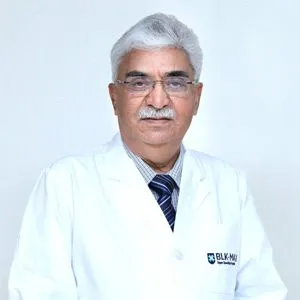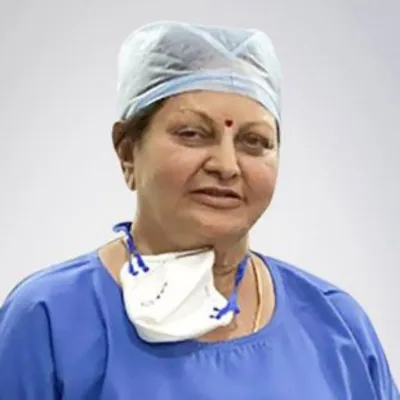Best Cardiologists in Artemis Hospital Gurgaon
 10 December,2025
Read More
10 December,2025
Read More
Starting From: USD 2,285 - USD 3,187
Intestinal PAD Bypass Surgery is affordable in India. The cost of Intestinal PAD Bypass Surgery in India lies between USD 2,285 - USD 3,187. The exact procedure price depends on multiple factors such as the surgeon's experience, type of hospital, severity of the condition, patient's general condition,�etc.
Peripheral Artery Disease (PAD) is a condition characterized by the narrowing or blockage of arteries, primarily in the legs, due to a buildup of fatty deposits. While PAD most commonly affects the lower limbs, it can also manifest in the mesenteric arteries, which supply blood to the intestines. Intestinal PAD can lead to severe abdominal pain after meals, weight loss, and malnutrition. When conservative treatments are ineffective, surgical intervention may be necessary. Intestinal PAD Bypass Surgery is a specialized procedure aimed at restoring blood flow to the intestines and alleviating debilitating symptoms.
Intestinal PAD, also known as mesenteric artery disease, occurs when atherosclerosis narrows or obstructs the mesenteric arteries. These arteries supply oxygen-rich blood to the intestines, facilitating the process of digestion and absorption of nutrients. When blood flow to the intestines is compromised, it can lead to a condition known as mesenteric ischemia.
Peripheral Artery Disease (PAD) bypass surgery is typically recommended for individuals who have advanced PAD and are experiencing severe symptoms that significantly impact their quality of life. The best candidates for PAD bypass surgery generally exhibit the following characteristics:
It's important to note that each patient is unique, and the decision to undergo PAD bypass surgery should be based on a thorough evaluation by a vascular specialist or surgeon. The healthcare team will consider the specific characteristics and needs of the individual patient to determine the most appropriate treatment plan. Additionally, they will provide detailed information about the potential benefits and risks associated with the surgery.
The Intestinal PAD Bypass Procedure
Intestinal PAD Bypass Surgery is a complex procedure that aims to reroute blood flow around the blocked or narrowed segment of the mesenteric artery. There are several approaches to this surgery:
Following Intestinal PAD Bypass Surgery, patients can expect a period of recovery and rehabilitation:
Intestinal PAD Bypass Surgery offers several significant advantages:
As with any surgical procedure, there are potential risks associated with Intestinal PAD Bypass Surgery. These may include infection, bleeding, graft blockage, and complications related to anesthesia. Additionally, the decision to proceed with surgery should be based on a thorough assessment by the healthcare team, weighing the potential benefits against the risks for each individual patient.
Intestinal PAD Bypass Surgery represents a crucial intervention for individuals suffering from mesenteric artery disease. By restoring blood flow to the intestines, the surgery provides relief from debilitating symptoms and significantly improves the patient's overall quality of life. With advancements in surgical techniques and post-operative care, Intestinal PAD Bypass Surgery continues to offer hope and restored health to those affected by this challenging condition.

Chairman
Interventional Cardiologist
BLK-Max Super Speciality Hospital, New Delhi

Director
Cardiologist, Interventional Cardiologist
Max Super Speciality Hospital, Saket, New Delhi

Chairman
Cardiac Electrophysiologist, Interventional Cardiologist
BLK-Max Super Speciality Hospital, New Delhi

Consultant
Interventional Cardiologist
Indraprastha Apollo Hospital, New Delhi

Head of Department (HOD)
Cardiologist
Nanavati Super Specialty Hospital, Mumbai

Consultant
Interventional Cardiologist
Apollo Hospital Chennai, Greams Road
Doctor of Pharmacy
Dr. Deepanshu Siwach is a skilled clinical pharmacist with a Doctor of Pharmacy degree.?He has 4+?years of experience and has worked with thousands of patients. He has been associated with some of the top hospitals, such as Artemis Gurgaon.
Dr. Deepanshu Siwach is a skilled clinical pharmacist with a Doctor of Pharmacy degree.?He has 4+?years of experience and has worked with thousands of patients. He has been associated with some of the top hospitals, such as Artemis Gurgaon....
Dr. Aseem Ranjan Srivastava is an experienced Pediatric Cardiothoracic Surgeon specializing in Minimal Access and Robotic Cardiac Surgery. He strongly recommends prompt corrective repair when possible....
The Art of Effective Communication
 10 December,2025
Read More
10 December,2025
Read More
 09 December,2025
Read More
09 December,2025
Read More
 05 December,2025
Read More
05 December,2025
Read More
 04 December,2025
Read More
04 December,2025
Read More
 27 November,2025
Read More
27 November,2025
Read More
 25 November,2025
Read More
25 November,2025
Read More